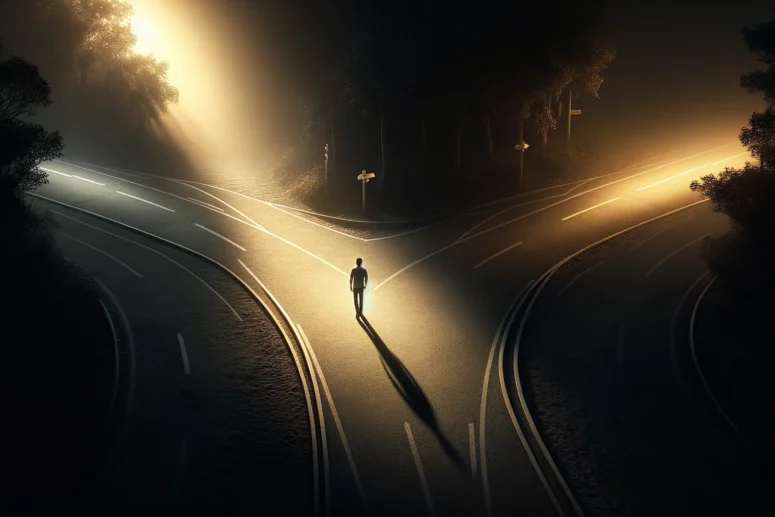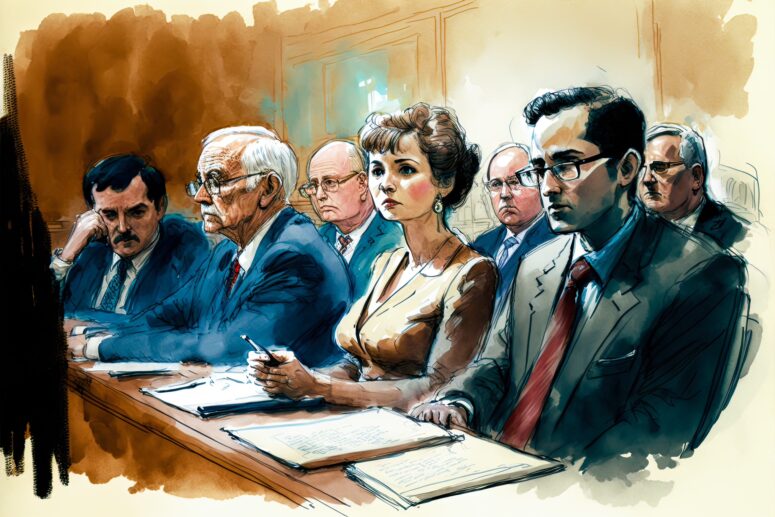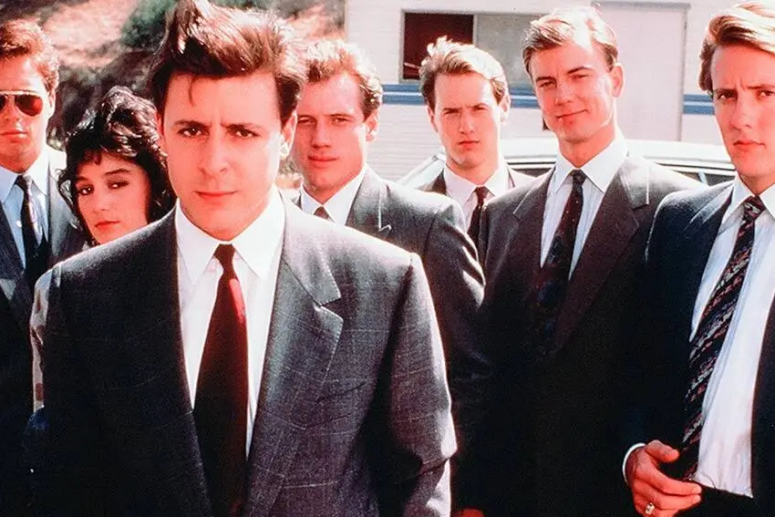February 23, 2024
By Joe Hunt
Scotty Higgins posted this comment on our Facebook post:
“I believe if Joe Hunt admits to his crimes… and shows remorse for his part in them and tells what happened to Ron Levin and where his body is. That’s the only real chance Joe has of ever getting out.”
Outside of completely misunderstanding the spiritual basis of life, my fault in my youth was that I was prone to lie under pressure—as many of us are. Viewing my life through a secular lens and having been exposed to many other liars, including a few in positions of authority, I felt that words were best chosen purely for the desired effect on the listener. Among the businessmen I encountered and within my social circle, no one championed truthfulness on spiritual grounds or pointed out the karmic implications of being a liar.
The Paradox of Contrition in Incarceration
Now, I find myself in the ironic predicament of being more likely to be granted clemency and then parole if I start talking as if I were guilty and assume the posture and phraseology of contrition.
That is, after all, the well-worn path that prisoners the world over take to get out of prison.
Reflecting on a Misguided Past
“For me, there is one problem. To do that would mean I have neither learned anything nor advanced spiritually.”
For me, there is one problem. To do that would mean I have neither learned anything nor advanced spiritually. This all started with a seemingly convenient lie. The idea was to capitalize on Levin’s disappearance as he ran from a second prison sentence. The plan was to claim responsibility for his absence as a means to intimidate a rival faction of the BBC. Profoundly stupid in retrospect, but not as foolish as it would have been to brag about a murder one had actually committed. I never guessed Levin would stay gone and never be apprehended. Nor did I realize how the collapse of the BBC and the pressures that were brought to bear on my erstwhile cohorts would incentivize them to project a materially false narrative regarding my conduct and theirs.
Advocate for justice in light of Joe Hunt’s unfair legal treatment by supporting his bid for a fair parole review. His commendable behavior and positive contributions highlight his rehabilitation. Sign the petition to endorse a balanced review of his case, emphasizing the need for justice and fairness in our legal system.
But, yes, you’re right. The Government has all the power, and it tends to demand submission and to punish even well-evidenced contradiction as insubordination. And of course, the Government is always right, and its papers are not subject to the frailties and limitations of those who authored them, right?
So I agree, my insistence on my innocence is not practical; it is not pragmatic. But then there are values and principles that I now hold more dear than my life and freedom. Having grown spiritually, I know that I lied my way into prison and that it would be wrong to lie my way out. I also know that justice is not guaranteed on this Earth and that persecution, not comfort, is promised to those who stand on principle.
“Having grown spiritually, I know that I lied my way into prison and that it would be wrong to lie my way out.”
The Quest for Justice Amidst Unseen Truths
Though there isn’t a person on the planet who stands witness to the community saying they saw me kill someone, and though there is just a ‘theory’ of foul play behind my conviction, society has been persuaded by films and “documentaries” that I am guilty. People feel I did it because they saw an actor called “Joe Hunt” live out the prosecution’s case. They feel, therefore, that they “saw” me do it. But what they saw was a theory of the case enacted on a stage; a theory which no man has ever sworn he has observed.
I recall reading about a prisoner during China’s Cultural Revolution. Falsely accused of being a yellow-dog agent of Western “Imperial” powers, he stubbornly refused to admit the allegation. He withstood torture and potential death in a work camp rather than admit to a crime he was innocent of. At one point, an interrogator said that he agreed the charge was false but urged him to confess anyway as it would serve the State, reinforcing its efforts to create a new society based on communism and Chairman Mao’s guidance. He told the prisoner, “It’s good to be useful.”
Though the injustice done to that man is different in some ways than that done to me, and though he was totally undeserving of that fate, his story resonates with me.
It would be a useful validation of the system for me to confess, albeit to a false account. Though I am guilty of lying and cheating, such behaviors do not inherently conceal or give rise to murder.
If Joe’s story has moved you, share this article to raise awareness (share buttons at the bottom of the page). The more people know, the stronger the push for a re-examination of his case. Use your voice on social media to advocate for transparency and fairness in the legal system.
Reassessing Evidence and Pursuing Justice
Isn’t it just as likely that Levin, the seasoned con man, won out over me, especially the 24-year-old me that existed in 1984? Hadn’t he gotten the better of me through several other tricks? Why is it that everyone feels comfortable ignoring the mountain of evidence that came to light after I was convicted? Why must I have been telling the truth when I claimed I “knocked off” Ron Levin? Especially when the State’s case was that all of us in the BBC were lying about so many other things? Why is it probable that the more than half dozen non-partisan citizens who came forward to report Levin alive are mistaken? Why do many just assume they are, despite hearing from several new witnesses that Levin asked for instructions on how to dye his hair, was researching extradition treaties, and swearing he would not go back to prison? Shouldn’t a man have the right to a trial with that powerful new evidence before he dies in prison for a conviction so impressively called into question?
The truth is that I was convicted merely because I was tried in 1987, rather than in 1988. Had I been tried a year later, like my co-defendant Jim Pittman, I would have been able to present more exonerating evidence. And, as he was, I would then have been released by a jury verdict.
Join the Conversation: The Ask Joe Series
Do you have questions about Joe Hunt’s case or want insights on the justice system? Be a part of our ongoing “Ask Joe” series. This is your chance to engage directly with Joe and delve deeper into his story and experiences. Post your questions on our Facebook page or X.com, and stay tuned as Joe addresses your queries in upcoming segments. Your question could be the next one we explore in our journey for justice and understanding.
Don’t miss this unique opportunity to interact and gain perspective straight from Joe. Ask away, and let’s unravel the complexities together!


